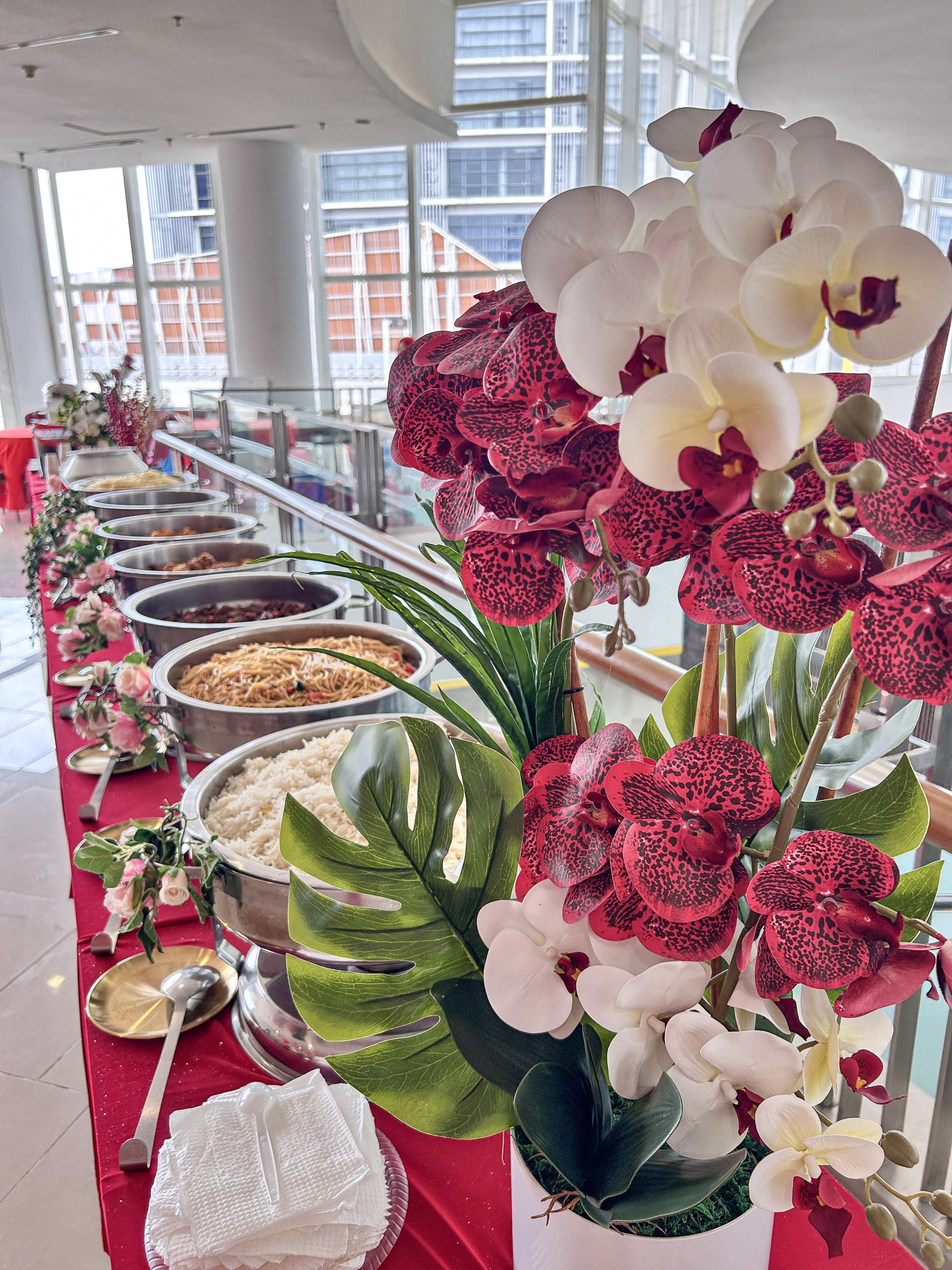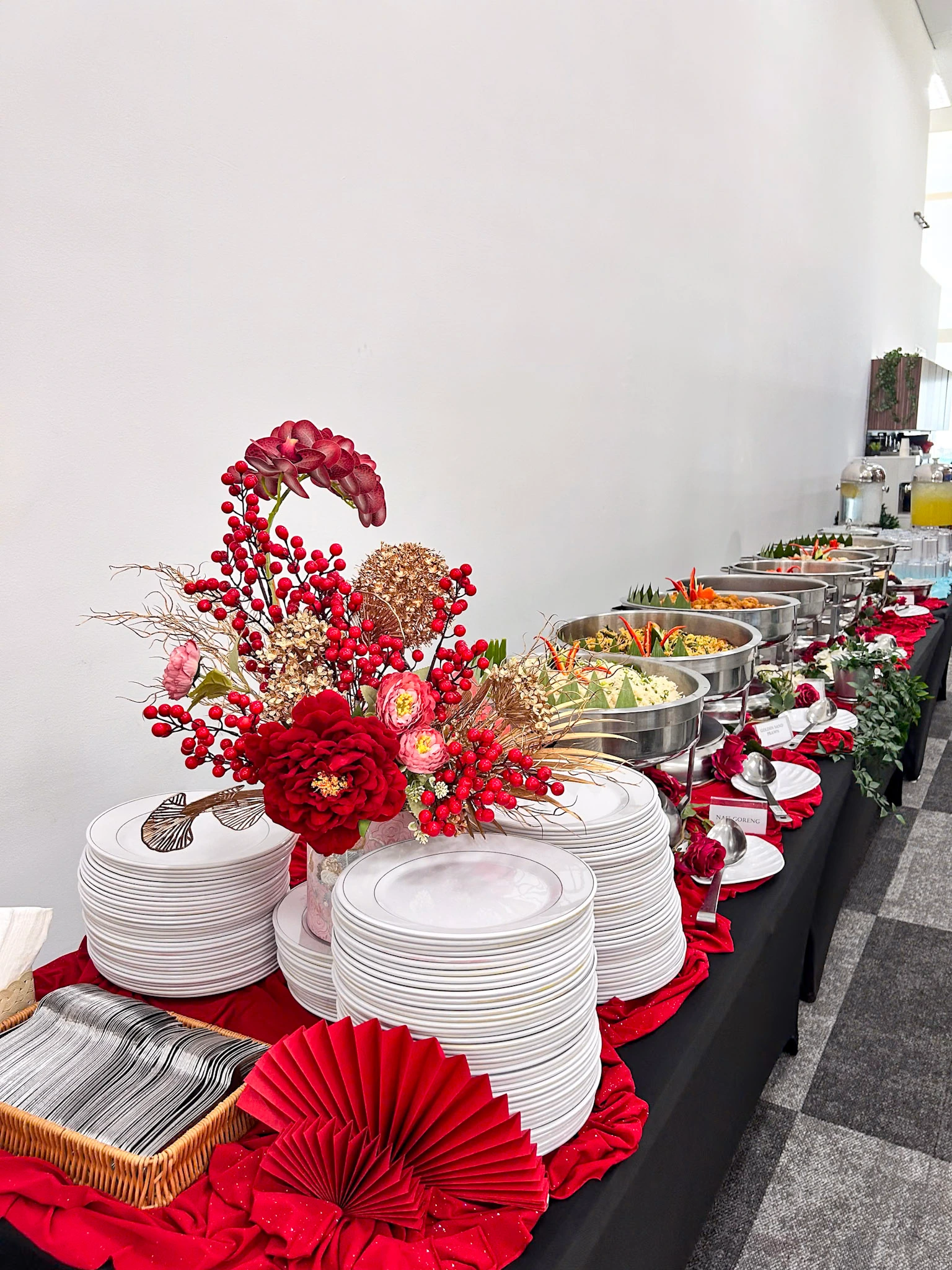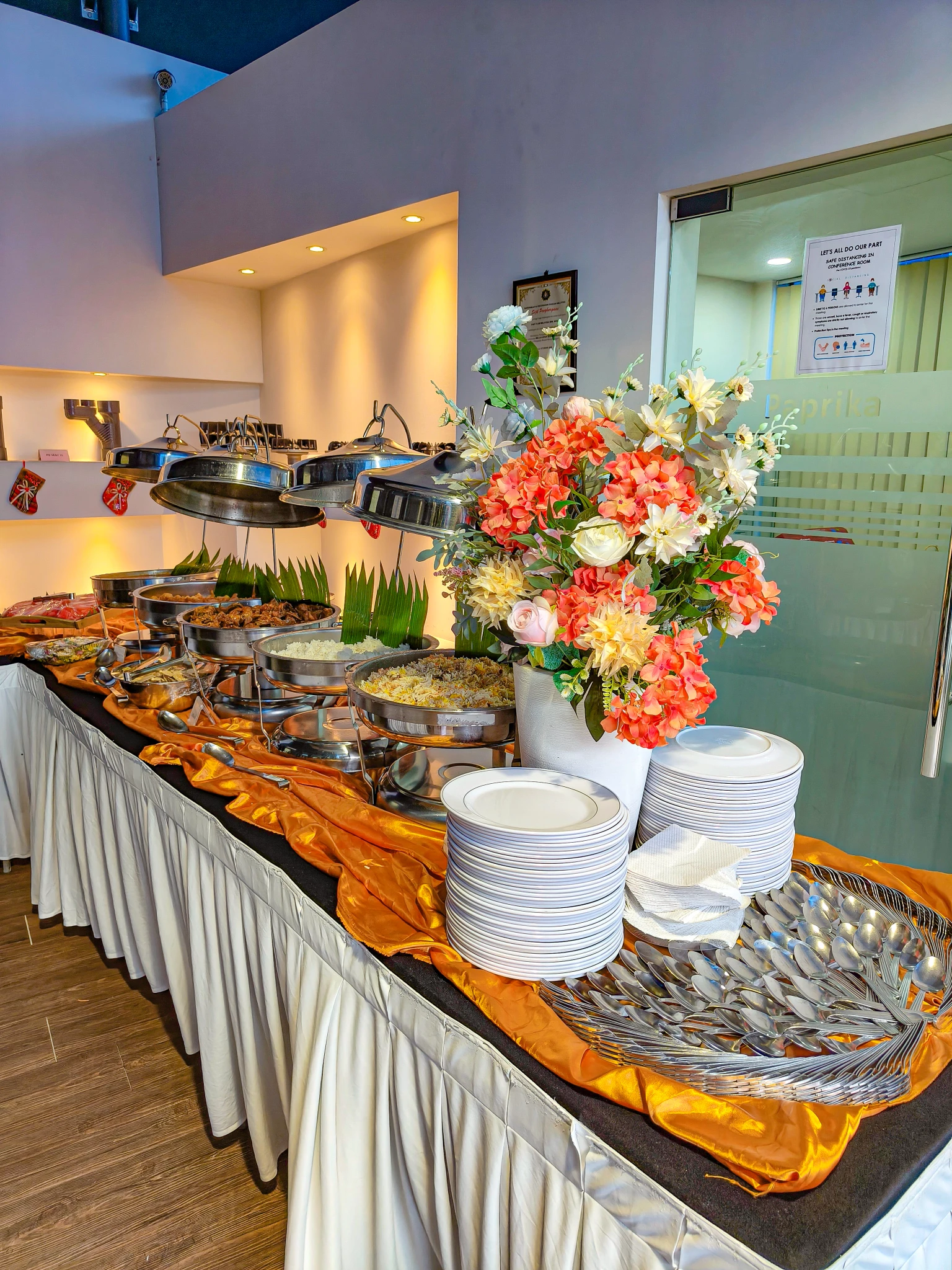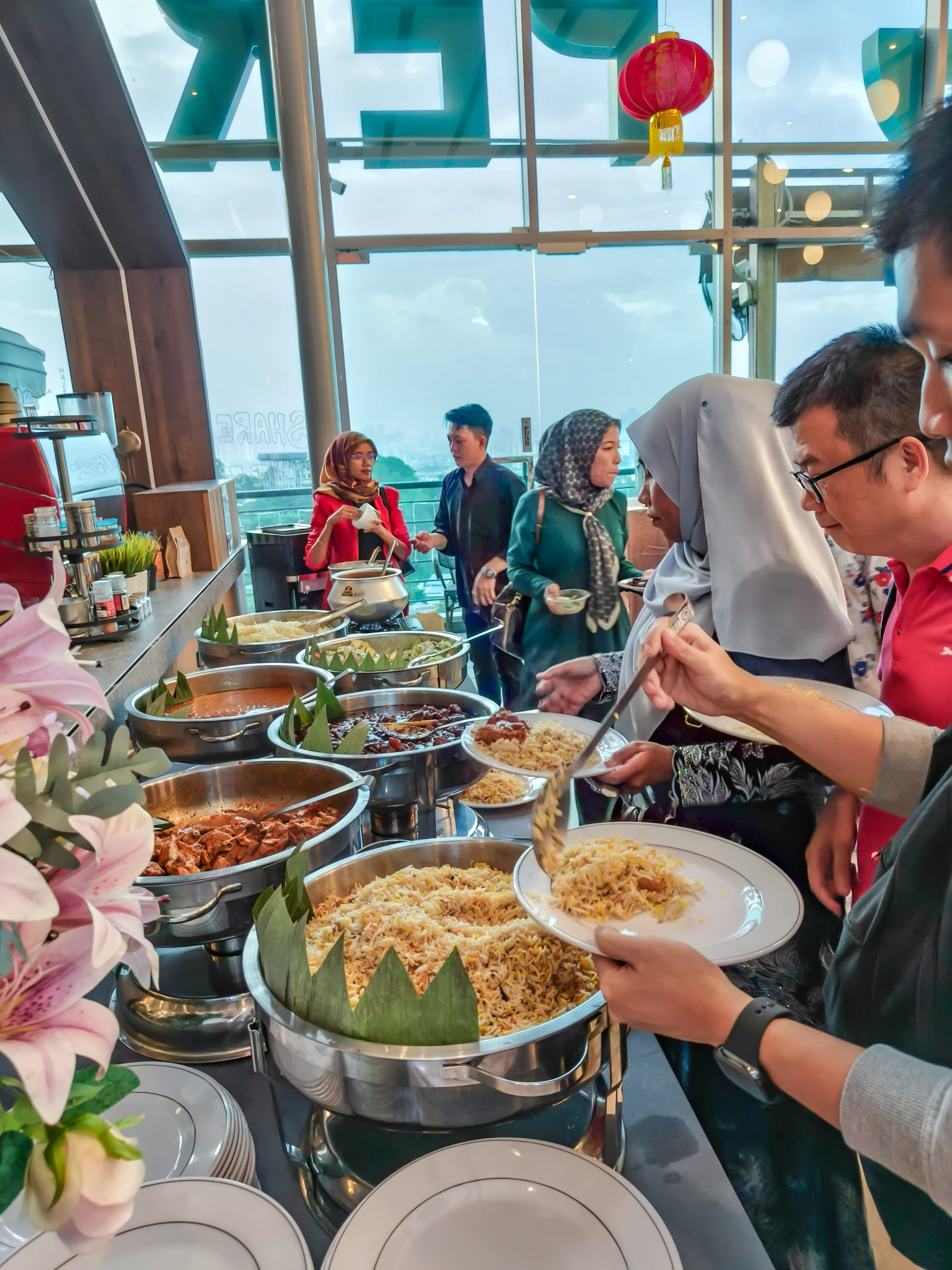


1. Understanding the Audience
Effective corporate event planning begins with a deep understanding of the audience. Kuala Lumpur is a melting pot of ethnicities, including Malay, Chinese, Indian, and a vibrant community of expatriates. Each group brings unique dietary preferences influenced by cultural traditions and religious practices. For example, the majority Malay population adheres to halal dietary laws, while the Indian community may include vegetarians or those who avoid beef. Acknowledging these nuances is the first step in planning an inclusive catering menu.
2. Planning for Diversity in Catering
Catering for a diverse audience means more than just mixing Western and Asian dishes. It requires a thoughtful blend of:
- Cultural Diversity: Offering a menu that includes traditional Malay, Chinese, and Indian dishes.
- Religious Accommodations: Ensuring meals meet religious dietary laws, such as providing halal-certified meats and vegetarian options.
- Health and Dietary Restrictions: Considering health-related preferences and restrictions, such as low-carb options or allergy-friendly foods.
- Lifestyle Choices: Including choices for vegans, vegetarians, and those following specific diets like keto or paleo.
- Age Considerations: Tailoring food choices to appeal across different age groups, with milder options for older attendees and more adventurous selections for younger crowds.
3. Choosing the Right Caterer
Selecting the right caterer is crucial. The ideal caterer for a corporate event in Kuala Lumpur should have:
- Experience with Multicultural Menus: They should showcase an ability to create authentic, diverse menus that reflect the city’s multicultural demographics.
- Flexibility and Responsiveness: The ability to adapt the menu based on feedback and specific event requirements.
- Reputable Certifications: Especially important are halal certifications, which are a necessity in accommodating the dietary laws of the Muslim workforce.
4. Menu Must-Haves
An exemplary menu for a Kuala Lumpur corporate event would feature:
- Malay Dishes: Such as Nasi Lemak, Beef Rendang, and Satay.
- Chinese Dishes: Including Lemon Chicken, Chicken Kam Heong, Sweet and Sour Fish Fillet, and Golden Sand Prawn.
- Indian Dishes: With options like Chicken Masala, Mutton Curry, Aloo Gobi, and Vadai.
- Middle Eastern Dishes: Offering Kabsah Rice, Lamb Shank Kabsah, and Chicken Mandy.
- Western Cuisines: Like Grilled Steak with Herb Butter and Roasted Chicken with Rosemary and Lemon.
- Italian Pastas: Featuring a pasta station with choices of spaghetti, penne, and fusilli, served with sauces such as Marinara, Alfredo, and Pesto.
5. Incorporating Local Flavors
Incorporating local Malaysian flavors into the menu not only adds a familiar touch for local attendees but also showcases Malaysia’s rich culinary heritage to international guests. Offering a creative twist on traditional dishes can make the menu exciting and inclusive.
6. Interactive Food Stations
Interactive food stations are not just engaging; they allow guests to customize their meals to their taste and dietary preferences. Stations like a customizable pasta bar, a local delicacy corner, or even a gourmet salad station can significantly enhance the catering experience at corporate events.
7. Feedback and Continuous Improvement
Post-event feedback is invaluable. It provides insights into what worked and what could be improved, helping refine future catering efforts. Actively seeking and incorporating feedback ensures that each event is more successful than the last.
8. Conclusion
In Kuala Lumpur, where diversity is celebrated, corporate catering is about more than just food. It’s about respect, inclusion, and creating an atmosphere where everyone feels valued. Thoughtful catering choices that consider the diverse tastes and dietary needs of all attendees can transform a simple corporate gathering into a memorable event.



Check our Catering KL services:
Catering KL
Hari Raya Catering KL
Chinese New Year Catering KL
Halal Catering KL

